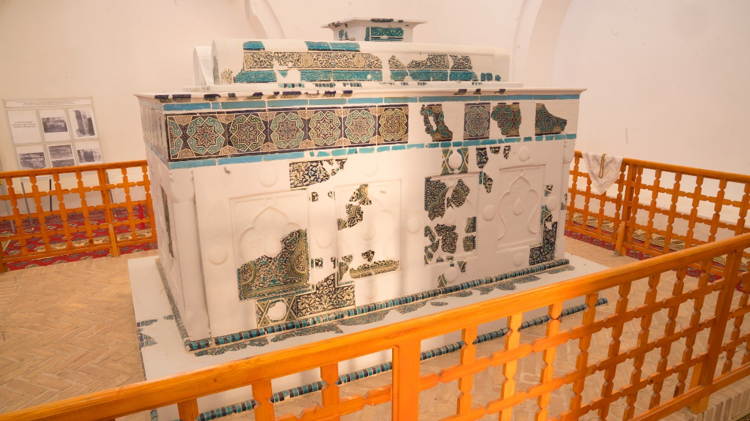On March 28, 2022, the U.S. Department of State’s Cultural Antiquities Task Force (CATF) held a virtual training workshop for law enforcement officials from the United States and the United Kingdom to enhance their knowledge about cultural property from South and Central Asia, including Afghanistan and Pakistan, and to build capacity to disrupt its trafficking.
The training brought together more than 100 participants and presenters from Homeland Security Investigations (HSI), Customs and Border Protection, the Federal Bureau of Investigation (FBI), the State Department, the Smithsonian Institution, the UK’s Metropolitan Police Service, other international partners, and representatives from U.S. universities.
Investigators and customs officers learned how to identify potentially looted, stolen, or forged cultural property from South and Central Asia, including Buddhist art, Nuristani wood carvings, and Mongolian fossils, among other materials. The workshop also covered the implementation of new emergency import restrictions on Afghan cultural property.
This training was the fourth in a series of virtual anti-trafficking workshops supported by the CATF and organized by the Smithsonian Institution’s Museum Conservation Institute and Office of International Relations, HSI, and FBI. The workshops provide law enforcement with knowledge and capabilities to help identify, investigate, and prosecute some of the most-trafficked categories of cultural property. Previous workshops addressed specific types of material, including coins, manuscripts, and fakes and forgeries.
This workshop supplements the CATF’s annual training program that, in partnership with HSI and Smithsonian, has now trained over 360 law enforcement personnel since 2009. Collectively, members of the CATF have successfully repatriated more than 20,000 pieces of cultural property to more than 45 countries since 2004.
Conservation of manuscripts and other objects, Afrasiab Museum of Samarkand, Uzbekistan, supported by the U.S. Ambassadors Fund for Cultural Preservation. Photo Credit: Tom Till.About the Cultural Antiquities Task Force
Created by the State Department in 2004 at the direction of Congress, the CATF comprises federal agencies that share a common mission to disrupt cultural property trafficking in the United States and abroad. Since its creation, the CATF has supported more than 100 domestic and international cultural property training programs. CATF is a law enforcement focused working group of the Cultural Heritage Coordinating Committee. Both are managed by the State Department’s Cultural Heritage Center.





